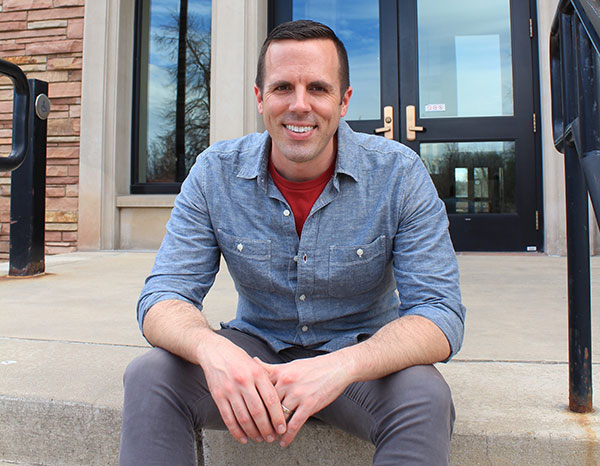Featured Alumni
Aaron Ganss | Majored in Philosophy with a minor in Economics | Class of 2018
 I am incredibly thankful for my philosophy degree from Southern Utah University. It was the perfect fit for me given my life’s direction at that time. Going to college 12 years after graduating high school was an unusual experience. Though I wasn’t quite sure what I wanted to study, I knew what I did not want to study. I didn’t want a degree for the purpose of getting a job. Maybe this is counterintuitive to the way higher education has evolved over the past century, but I worked for 12 years prior to college—I didn’t want to waste an opportunity that some people have died for, simply for the purpose of getting a better job.
I am incredibly thankful for my philosophy degree from Southern Utah University. It was the perfect fit for me given my life’s direction at that time. Going to college 12 years after graduating high school was an unusual experience. Though I wasn’t quite sure what I wanted to study, I knew what I did not want to study. I didn’t want a degree for the purpose of getting a job. Maybe this is counterintuitive to the way higher education has evolved over the past century, but I worked for 12 years prior to college—I didn’t want to waste an opportunity that some people have died for, simply for the purpose of getting a better job.
I chose philosophy because it was the closest degree I found to a true liberal arts education. The further I progressed in philosophy, the more my world expanded. It became evident that philosophy could be applied to literally every facet of life—and that’s freaking cool. It was never about learning a specific task or skill, but instead about transforming the way I saw and analyzed the world around me. Of course, that isn’t to say that studying philosophy failed to provide me with a useful skill.
While I’m finishing up my first year in law school at the University of Colorado, I am thankful more than ever for my philosophy degree. Reading law school case books is nothing like reading Plato—though I am convinced that would make law school far more enjoyable. No, reading case books is time consuming, arduous, complicated, confusing, and seemingly endless. But, so is reading Aristotle.
Trying to wrap my mind around metaphysics or the rabbit hole of confusion when studying metaepistemology is one hell of a mental task. A task that, even though I really didn’t know what was going on even after I wrote the paper, has been more beneficial than I ever realized it could be. Law school has made me realize the benefit of studying philosophy. For instance, it’s only my first year and we’ve already explored texts from Aristotle’s Nicomachean Ethics, John Locke’s theory of property rights, Jeremy Bentham’s utilitarianism, and ethical issues surrounding the death penalty and the theory of just punishment, not to mention that fact that the Founders of this country and the authors of the Constitution (you know, the supreme law of the land) were also extremely well read in philosophy.
Perhaps the most beneficial way philosophy has influenced my law school career is by giving me the grit to keep grinding through the long, complex, and confusing law school content. For those considering law school, know that there is little substantive knowledge to gain prior to law school that will help you succeed. Instead, focus on acquiring the tools that will help you be a better learner. There is a lot of reading in law school, none of it easy. It’s like the waves in the ocean—they just keep coming whether you’re ready for them or not.
When I first met Professor Kris Philips, he told me that studying philosophy will make everything else easier. Maybe I was a bit naïve, but I assumed he meant philosophy would make me some sort of logic wizard and help me better understand things. I was wrong. Philosophy is just really, really, hard. So hard, that it makes everything else seem less hard. Reflecting on that conversation now, I can’t imagine how difficult law school would be had I not first studied philosophy.
